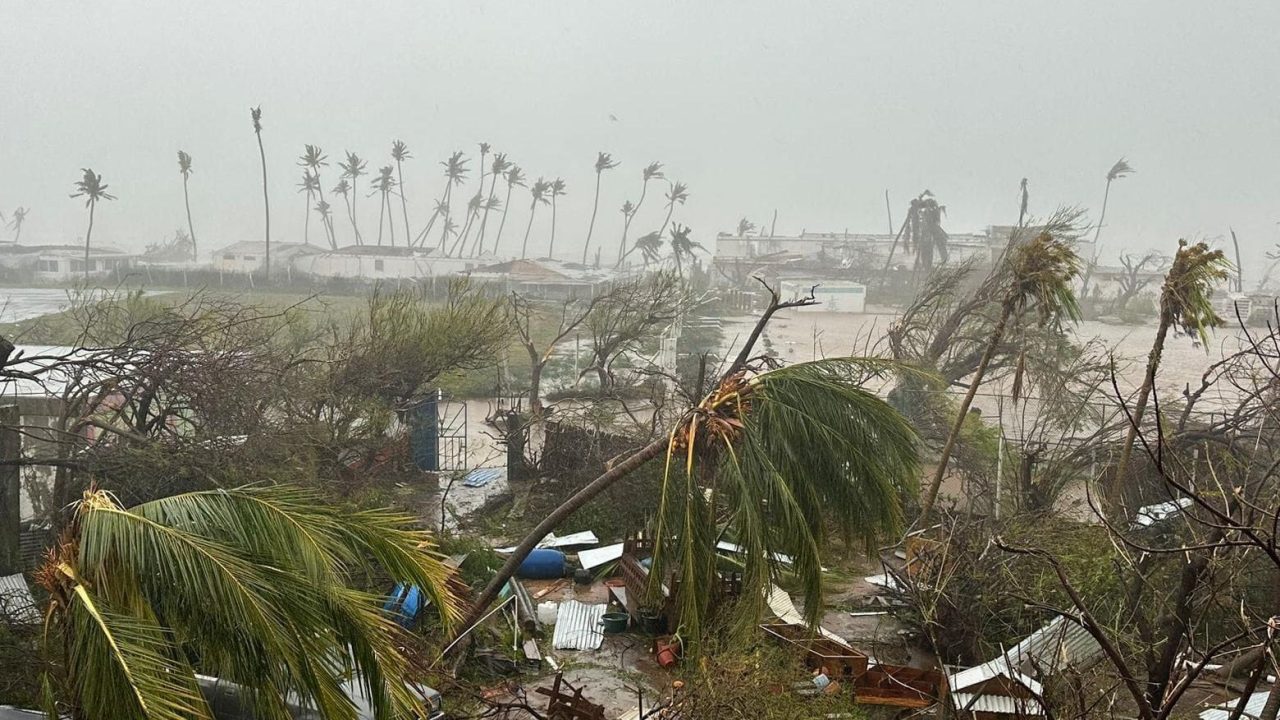Hurricane Beryl Leaves North America Shaken, Scientists Fear its the Beginning of Impending Doom
Climate change displaying its spectrum of destruction
Hurricanes hitting North America have become more and more intense over the past decade. As climate change warms the water in the eastern and central tropical and subtropical Atlantic, the estimated number and severity of hurricanes in the region is expected to increase. In an April release, researchers at Colorado State University (CSU) predicted that the region will witness an extremely active Atlantic hurricane season in 2024. Despite the warnings, the masses were not prepared for the death and destruction that Hurricane Beryl wrought.
The hurricane was a deadly Category 5 Atlantic hurricane that laid waste to parts of the Caribbean, the Yucatan Peninsula, and the Gulf Coast of the US in late June and early July 2024. Since 1960, 30 Atlantic hurricanes have reached Category 5, with record high winds of 158 mph, with more impending disasters in sight.
The researchers at CSU have updated the forecast, which still predicts 23 named storms, 11 of which will reach hurricane strength by November. Alarmingly, five of those 11 predicted hurricanes will reach strengths of Category 3, 4, or 5 with sustained winds of 111 mph or higher.
The researchers fear the warming oceans and the rising intensity of hurricanes have a direct relation. Evidently, when waters in the eastern and central tropical and subtropical Atlantic are warmer than average in the late spring/early summer, it serves as the fuel source for the hurricanes by forcing weaker subtropical highs and associated weaker winds blowing across the tropical Atlantic.
A warm Atlantic causes lower atmospheric pressure and a more unstable atmosphere, favoring hurricanes. As for the 2024 Atlantic hurricane season, these conditions are marked to persist well-above-average water temperatures for the majority of the season.

Image: Reuters
A very warm Atlantic favors an above-average season because warm ocean water serves as a fuel source for hurricanes. In addition, a warm Atlantic leads to lower atmospheric pressure and a more unstable atmosphere. Both conditions favor hurricanes.
El Niño conditions are weakening quickly across the tropical Pacific and are expected to change to La Niña conditions by the peak of the Atlantic hurricane season. La Niña causes weakening upper-level westerly winds across the Caribbean and the tropical Atlantic, which favors hurricane formation and intensification.
But the predicated intensification and rising number of hurricanes is not what is alarming. What’s more alarming than the destruction the hurricanes will bring is the warning from researchers that stating that this is but a taste of the impending doom that climate change seeks to bring.
The Atlantic hurricane season is six months long. Barely into the season and Hurricane Beryl came knocking as a monster killing over a dozen, injuring countless and loss of livestock and property. With peak months still ahead, climate scientists are dreading what is to come.
“It’s a big wake-up call, certainly for folks in the US and throughout the Caribbean, that a greater risk for more extreme hurricanes is certainly there, and with warmer waters into the late spring, we’re getting an earlier start to the hurricane season. We’re seeing these types of storms developing very quickly, more so than 20 to 30 years ago, with all that warm water in place. Science has evolved well with computer models forecasting the tracks of these storms, but intensity is still a challenge. Rapid intensification certainly we’re very concerned about, especially when these things get closer to the coast.” Brett Anderson, senior climate scientist with AccuWeather, told the Guardian.
According to Brian McNoldy, a climate scientist at the University of Miami, the ocean heat has been breaking records or close to breaking records for the past 15 months or so.
There is only one conclusion to draw from Hurricane Beryl’s destruction: the world can expect more of the same, only more intense!


